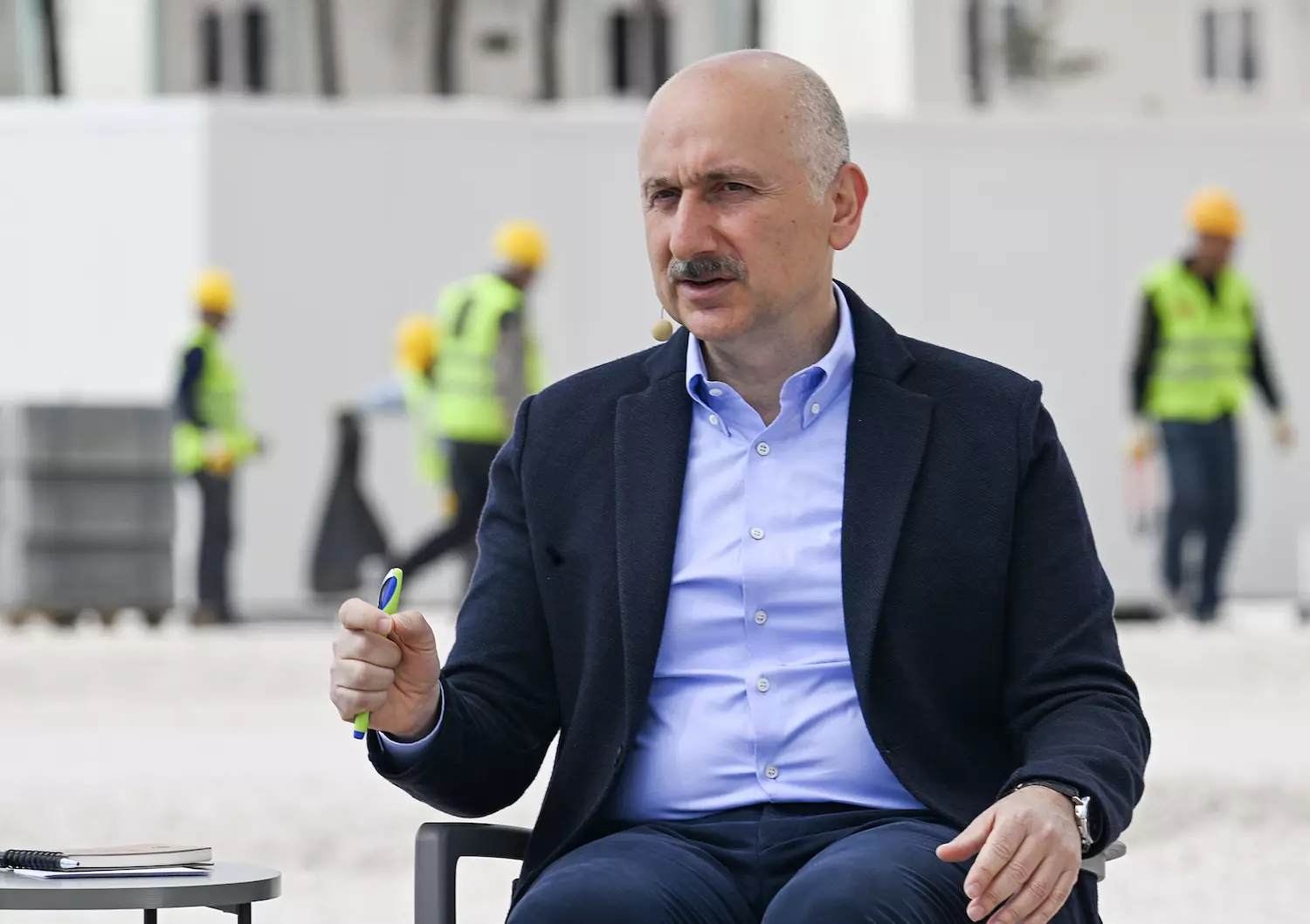Container cities to host 10,000 quake-hit families in Türkiye’s Adiyaman

‘We will have completed container cities by April,’ says Turkish transport and infrastructure minister
Container cities in the Turkish southeastern province of Adiyaman, one of the 11 provinces struck by the devastating Feb. 6 earthquakes, will host nearly 10,000 quake-hit families by the end of this month, said the country’s transport and infrastructure minister on Thursday.
“By the end of March, we will start hosting nearly 10,000 families in container cities (in Adiyaman). We will have completed this by April,” Adil Karaismailoglu said told Anadolu’s Editors' Desk held in a container city in Adiyaman.
Karaismailoglu said they have created 15 container areas in Adiyaman, adding that they will continue to produce solutions to make quake victims comfortable in temporary living spaces.
Vowing to build the cities better than before, he said they will not leave the quake areas before restoration process will finish.
Noting that the railways took a major role in the evacuation and transportation of 100,000 people from the region, he said they transported nearly 30,000 people by sea, especially with passenger ferries from the Port of Iskenderun in southern Hatay province.
”We have evacuated nearly 700,000 citizens from a total of nine airports in the earthquake zone,” he said.
While evacuating 100,000 citizens at Adiyaman Airport, we had the opportunity to instantly transport thousands of tons of cargo to quake-hit victims, he added.
“We transported nearly 700,000 citizens by air, nearly 100,000 by rail, and around 30,000 by sea in the earthquake zone,” he said.
Besides economic benefits, transportation infrastructure projects in the last 20 years contribute to logistics in disaster situations, he said. These investments and projects gave a very successful test during the earthquake process, he added.
He added that they use seismic isolators in Eurasia Tunnel -- connecting Asia to Europe -- Marmaray underwater railway in Istanbul, and highway projects.
Regarding the base stations in the earthquake zone, he said communication service was tried to be provided with 350 mobile vehicles except for the first four days. This has increased day by day, he added.
"We had some communication difficulties,” he said, adding that the generators at the base stations went out of business.
“We started to build towers and re-establish fixed base stations. … We provide free wi-fi service to all tent cities,” he said. This needs to be installed permanently, not mobile, and capacity needs to be increased substantially, he added.
For GSM operators -- which could not operate properly in the quake area -- he said they gave them penalties and launched investigations as they did not take precautions.
More than 46,100 people were killed in Türkiye by earthquakes that struck on Feb. 6, according to officials.
The magnitude 7.7 and 7.6 quakes, centered in Kahramanmaras, rocked 11 provinces, including Adana, Adiyaman, Diyarbakir, Gaziantep, Hatay, Kilis, Malatya, Osmaniye, Elazig, and Sanliurfa.
Around 13.5 million people in Türkiye have been affected, as well as many others in northwestern Syria.

